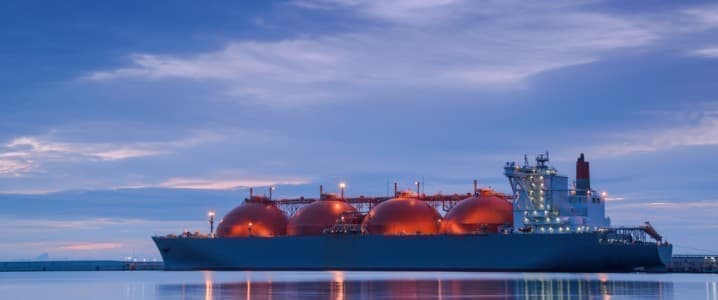ウクライナ戦争
By Haley Zaremba – Jul 17, 2024, 4:00 PM CDT
- The IEA is introducing mechanisms to stabilize global LNG prices, promote transparency, and facilitate trade.
- Japan is working to reduce its reliance on LNG imports and lower its share in the national energy mix.
- Increased LNG supply and lowered consumption in Japan could lead to a potential surplus, prompting Japanese firms to invest in Asian markets.

Global liquefied natural gas markets (LNG) are in a prolonged state of flux. The ongoing Russian war in Ukraine has continued to create waves in global energy markets, and the instability has resulted in significant price volatility across markets. While LNG prices have fallen recently, they are still extremely high, at double the average price for liquified natural gas over the last five years, placing a major squeeze on net importers of the fossil fuel.
Just this week, the International Energy Agency (IEA) announced that it will introduce new mechanisms to stabilize prices, promote greater transparency, and facilitate easier trade between countries with excess LNG to places in need. “The IEA will set up a body as early as this year to share and analyze information on purchasing and anticipated demand of natural gas across different countries, and to issue recommendations to the agency’s 31 member countries,” Nikkei Asia reported over the weekend.
The volatility of the global LNG market has had a particularly large impact on Japan, which is reliant on imports for natural gas, which is absolutely critical to the country’s energy security, as it represents nearly a third of the national energy mix. Japan is working hard to reduce this reliance, as well as the chances of shocks, by both stockpiling LNG and lowering its share of the overall energy mix. The Japanese government has encouraged the private sector to buy up huge volumes of LNG to keep a 100 million tonne stockpile at all times. And, by 2030, natural gas is expected to represent 20% of Japan’s energy mix, down from the current 30%.
Due to this combination of factors – increased LNG supply and lowered LNG consumption – Japan could actually end up with a problematic surplus of natural gas reserves, an ironic problem for a nation that produces virtually none of the stuff. Due to what could prove to be an overcorrection and over-purchase of LNG supplies in the near future, Japanese firms are now scrambling to invest in markets across Asia to court potential buyers.
“Japanese LNG demand is uncertain, but the government wants to secure stable supply over the long term,” Yoko Nobuoka, senior analyst at LSEG, recently told Reuters. “Developing its own trading capability and creating an Asia-wide gas market would help to increase energy security and hedge risks of LNG surplus,” she continued. This would mark a huge role reversal for Japan, which up until last year (when it was overtaken by China) was the biggest purchaser of LNG in the world.
Consumption of natural gas has soared across Asia in recent months as extreme temperatures have driven up demand. As the summer months set in, prices are expected to increase even further, placing a painful squeeze on emerging Asian economies. Demand has soared in South Asia where temperatures have been and will likely continue to be dangerously hot, and other nations including the Philippines and Vietnam have recently begun importing LNG for the first time, making the marketplace even more crowded.
Establishing a stable and secure LNG market is therefore of critical importance to the energy security of the entire Asian continent. It’s also of integral importance to many Asian nations’ decarbonization plans. Many Asian markets are counting on increased use of natural gas as a ‘bridge fuel’ to help regional economies move away from dirtier coal and oil toward renewables and other zero-carbon alternatives such as nuclear energy.
However, there is a considerable amount of pushback against this strategy, which many climate experts see as an inadequate and even dangerously greenwashed measure. Recent debates have called into question whether natural gas is really any less carbon intensive than other fossil fuels. Nevertheless, LNG remains squarely at the heart of many country’s energy strategies in coming months and years, and the market – not to mention the climate – is set to stay hot.
By Haley Zaremba for Oilprice.com
More Top Reads From Oilprice.com:
- Aluminum Prices Face Downward Pressure as Tariffs Influence Market Trends
- The EU Is Facing a Looming Gas Supply Crisis
- Rio Tinto’s Multi-Billion-Dollar Lithium Mine Back on Track in Serbia
![]()
Haley Zaremba
Haley Zaremba is a writer and journalist based in Mexico City. She has extensive experience writing and editing environmental features, travel pieces, local news in the…







